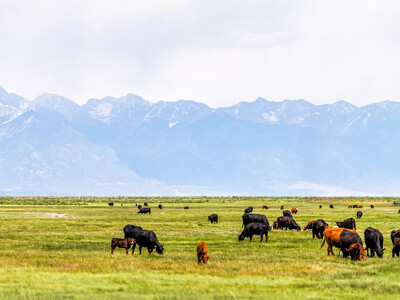$15 Min Wage & Meeting Deadlines
$15 Min Wage & Meeting Deadlines plus Food Forethought. I'm Greg Martin with today's Northwest Report.Oregon's Multnomah County Board of Commissioners have voted to approve a $15 minimum wage increase for all county employees beginning in July of 2016. The cost of the wage increases is estimated around $100,000 through June 2016 and just under $200,000 from July 1, 2016 to June 30, 2017. The increase will is for all Multnomah County employees. The federal minimum wage currently is $7.25. Washington State has the highest minimum wage in the nation at $9.32 an hour.
Renewable Fuels Association officials are not surprised oil industry groups are looking at suing EPA over their delay in getting out the 2015 RFS volumes. RFA Senior Vice President Geoff Cooper doesn't think the American Petroleum Institute or American Fuel and Petrochemical Manufacturers will be successful in their litigation attempts against the agency.
COOPER: If they did happen to be successful it's going to force EPA to meet those deadlines that are in the statute. EPA has told us that they want to meet those deadlines and they are hoping to get the program back on schedule and start meeting these deadlines ahead of time.
The northwest is home to a number of ethanol refineries.
Now with today's Food Forethought, here's Lacy Gray.
The recent debate over GMO's that was hosted by Intelligence Squared was interesting to say the least. Four individuals from opposing sides addressed the issue of whether or not we should grow genetically modified foods, with the participating audience voting for or against the motion both before and after the debate. Robert Fraley from Monsanto and Alison Van Eenennaam from UC Davis argued the positive; Charles Benbrook, research professor at the Center for Sustaining Agriculture and Natural Resources WSU, and Margaret Mellon, a consultant for the Center for Food Safety argued the negative. The for side argued that GM crops have been in our food system for twenty years with no known health risks to humans, and that food security will be improved through GM crops that increase yields and can fight off pests and disease. The against side argued that GMO's have not lived up to their early promises, GMO safety is not adequately assessed with our current regulatory system, and that GMO crops pose environmental threats. Before the debate the audience was 30% for, 30% against and 38% undecided. At its conclusion the vote was 60% for, 31% against and 9% undecided.
Thanks Lacy. That's today's Northwest Report. I'm Greg Martin on the Ag Information Network of the West.














